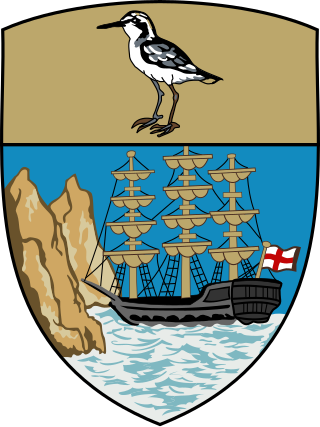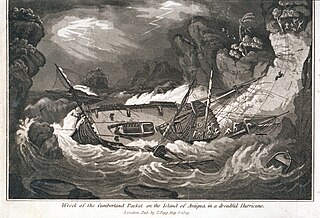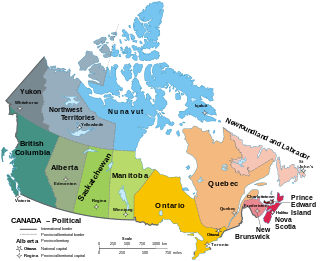Related Research Articles

Saint Helena is one of the three constituent parts of Saint Helena, Ascension and Tristan da Cunha, a British overseas territory located in the South Atlantic Ocean. Saint Helena is a remote volcanic tropical island 1,950 km (1,210 mi) west of the coast of south-western Africa, and 4,000 km (2,500 mi) east of Rio de Janeiro in South America.

Politics of Saint Helena takes place in a framework of limited self-government as a dependent territory of the United Kingdom, whereby the governor is the head of government. Saint Helena, an island in the southern Atlantic Ocean, is a part of the British overseas territory of Saint Helena, Ascension and Tristan da Cunha.

The history of Antigua and Barbuda covers the period from the arrival of the Archaic peoples thousands of years ago to the present day. Prior to European colonization, the lands encompassing present-day Antigua and Barbuda were inhabited by three successive Amerindian societies. The island was claimed by England, who settled the islands in 1632. Under English/British control, the islands witnessed an influx of both Britons and African slaves migrate to the island. In 1981, the islands were granted independence as the modern state of Antigua and Barbuda.

The Transvaal Colony was the name used to refer to the Transvaal region during the period of direct British rule and military occupation between the end of the Second Boer War in 1902 when the South African Republic was dissolved, and the establishment of the Union of South Africa in 1910. The borders of the Transvaal Colony were larger than the defeated South African Republic. In 1910 the entire territory became the Transvaal Province of the Union of South Africa.

Canada has ten provinces and three territories that are sub-national administrative divisions under the jurisdiction of the Canadian Constitution. In the 1867 Canadian Confederation, three provinces of British North America—New Brunswick, Nova Scotia, and the Province of Canada —united to form a federation, becoming a fully independent country over the next century. Over its history, Canada's international borders have changed several times as it has added territories and provinces, making it the world's second-largest country by area.

The Indian National Congress (INC), colloquially the Congress Party or simply the Congress, is a political party in India with widespread roots. Founded in 1885, it was the first modern nationalist movement to emerge in the British Empire in Asia and Africa. From the late 19th century, and especially after 1920, under the leadership of Mahatma Gandhi, the Congress became the principal leader of the Indian independence movement. The Congress led India to independence from the United Kingdom, and significantly influenced other anti-colonial nationalist movements in the British Empire.

The Progressive Party of Working People is a Marxist–Leninist communist party in Cyprus.
Nonpartisan democracy is a system of representative government or organization such that universal and periodic elections take place without reference to political parties. Sometimes electioneering and even speaking about candidates may be discouraged, so as not to prejudice others' decisions or create a contentious atmosphere.

The Progressive Party is an agrarian political party in Iceland.
Donald Grant Devine, SOM is a Canadian politician who served as the 11th premier of Saskatchewan from 1982 to 1991. He was the last Saskatchewan premier from the Progressive Conservative Party.
The Saint Helenapound is the currency of the Atlantic islands of Saint Helena and Ascension, which are constituent parts of the British Overseas Territory of Saint Helena, Ascension and Tristan da Cunha. It is fixed at parity with sterling, and so both currencies are commonly accepted and circulated within Saint Helena. It is subdivided into 100 pence.
Ebenezer Theodore Joshua was a Vincentian politician and the first chief minister of Saint Vincent from 1960 to 1967. He was the Leader of the Legislative Council from 1956 to 1961.
James Ronald Webster (2 March 1926 – 9 December 2016) was a politician from Anguilla. After ending the Saint Christopher-Nevis-Anguilla federation in 1967, he served as the island territory's first Chief Minister from 10 February 1976 to 1 February 1977 and again from May 1980 to 12 March 1984.

The Falkland Islands is an archipelago in the South Atlantic Ocean on the Patagonian Shelf. The principal islands are about 300 mi (480 km) east of South America's southern Patagonian coast and about 752 mi (1,210 km) from Cape Dubouzet at the northern tip of the Antarctic Peninsula, at a latitude of about 52°S. The archipelago, with an area of 4,700 sq mi (12,000 km2), comprises East Falkland, West Falkland, and 776 smaller islands. As a British overseas territory, the Falklands have internal self-governance, but the United Kingdom takes responsibility for their defence and foreign affairs. The capital and largest settlement is Stanley on East Falkland.

New Brunswick has had, since the Legislative Council was abolished by an act passed on 16 April 1891, a unicameral legislature called the New Brunswick Legislature, consisting of the Lieutenant Governor and the Legislative Assembly with 49 seats. The legislature functions according to the Westminster system of government. Elections are now held at least every five years but may be called at any time by the lieutenant governor on consultation with the premier.
The first legislative council election for the Madras Presidency after the establishment of a bicameral legislature by the Government of India Act of 1935 was held in February 1937. The Indian National Congress obtained a majority by winning 27 out of 46 seats in the Legislative Council for which the elections were held. This was the first electoral victory for the Congress in the presidency since elections were first conducted for the Council in 1920 and C. Rajagopalachari (Rajaji) became the Prime Minister. The Justice Party which had ruled the presidency for most of the previous 17 years was voted out of power. Congress also won the Legislative assembly election held simultaneously.
The Saint Helena Labour Party was a political party on the island of Saint Helena. The party was founded in 1974. Despite having a similar name to that of many left-wing parties across the world, the party advocated private enterprise as opposed to dependence on British economic aid and a supposedly government-dominated economy. It supported closer links with South Africa.

The history of Soviet Russia and the Soviet Union (USSR) reflects a period of change for both Russia and the world. Though the terms "Soviet Russia" and "Soviet Union" often are synonymous in everyday speech, when referring to the foundations of the Soviet Union, "Soviet Russia" often specifically refers to brief period between the October Revolution of 1917 and the creation of the Soviet Union in 1922.

Golos Armenii, previously known as Kommunist, is a Russian language newspaper published in Yerevan, Armenia.

General elections were held in Saint Helena in September 1976. They were the only elections on the island to have been contested by political parties, with the Saint Helena Progressive Party winning eleven of the twelve seats in the Legislative Council. The Saint Helena Labour Party had seen its leader Tony Thornton expelled from the island shortly before the election, and failed to win a seat.
References
- ↑ Olson, James Stuart; Shadle, Robert (1996). Historical Dictionary of the British Empire. Greenwood Publishing Group. p. 974. ISBN 978-0-313-29367-2.
- 1 2 The Europa Year Book. Europa Publications. 1974. p. 2832. ISBN 978-0-946653-15-7.
- ↑ Cross, Tony (1980). St Helena: Including Ascension Island and Tristan Da Cunha. David & Charles. p. 46. ISBN 978-0-7153-8075-8.
- ↑ EUROPA WORLD YRBK 1991 2V. Taylor & Francis. 1991. p. 3851. ISBN 9781857430776.